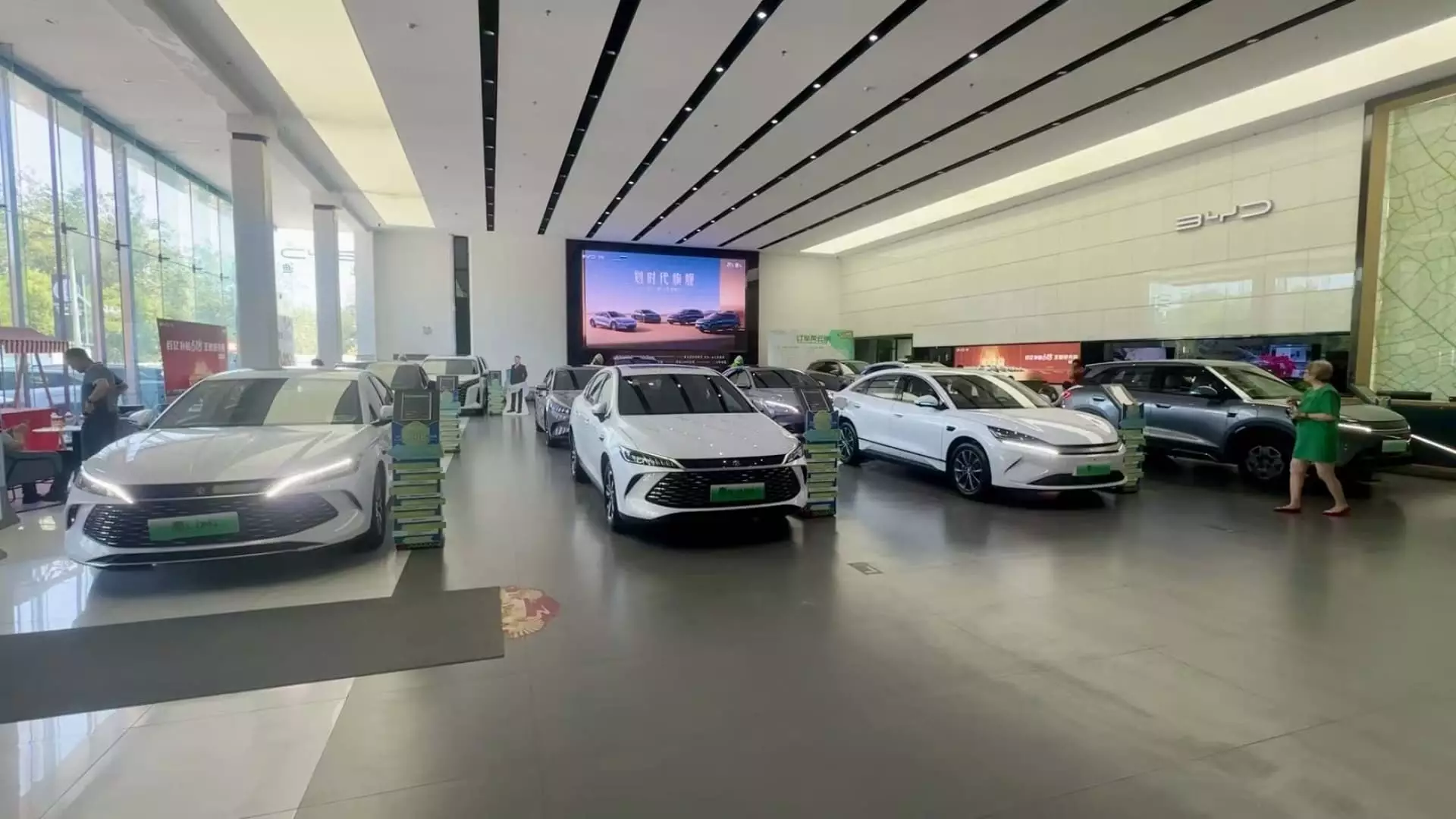In the bustling city of Beijing, confusion reigns in the electric vehicle (EV) market. Salesman Ma Hui paints a grim picture about his trade, one where aggressive pricing strategies have turned the burgeoning EV momentum into a perilous downward spiral. The narrative of cheap and accessible electric vehicles, particularly from market leader BYD, is increasingly being overshadowed by a relentless price war that threatens to destabilize an entire industry. This situation underscores a significant dilemma: while consumers may rejoice at lower sticker prices, the implications for manufacturers, salespeople, and the longevity of the industry could be devastating.
Profits in Peril: A Bleak Reality
The once-bustling atmosphere of the used car market now echoes with despair. “All of us were losing money last year,” lamented Ma, reflecting sentiments shared by his peers. The hyper-competitive landscape has led to excessive production, creating a perfect storm where profits vanish under an avalanche of discounting. The industry’s current trajectory raises tough questions about sustainability and long-term viability. The stark warnings from influential voices, including the Communist Party’s official paper, reveal a collective anxiety about the future of the automotive sector amidst such aggressive tactics.
A Global Concern, A Local Crisis
Internationally, China has faced criticism for flooding the global market with budget-friendly EVs, yet the most immediate consequences of price slashing can be felt domestically. Last week, the People’s Daily cautioned against the chaos unleashed by “disorderly price wars,” spotlighting the threats they pose not just to profit margins but to workers’ livelihoods as well. Such narratives bring to the forefront the reality that low prices could obscure deeper financial strains that might lead to job losses and industry instability across the board. This phenomenon challenges the notion that lower costs are inherently beneficial and posits that systemic health depends on balanced, fair competition.
BYD’s Controversial Leadership
As the leader in the EV market, BYD has received considerable backlash for its steep price cuts—some reaching a staggering 34%. While the Seagull mini hatchback now flaunts a price tag of about $7,700—a figure almost too good to be true—this aggressive markdown invites scrutiny. The auto industry’s titans, particularly the chairman of Great Wall Motor, have drawn alarming parallels to the catastrophic downturn of China’s property sector. As he boldly stated, an “Evergrande-like” crisis looms over the automobile industry, a stark reminder that what appears to be an opportune moment for consumers might be a ticking time bomb for manufacturers.
The Dangerous Trend of “Zero Mileage Used Cars”
The strain of this price war has exasperated an already fragile economic environment, giving rise to alarming practices like “zero mileage used cars.” This term describes vehicles that are registered yet never driven, simply to inflate perceived sales figures. Such tactics raise ethical concerns about transparency and the lengths to which companies will go for a competitive edge. The very fabric of trust in the market erodes as dealerships partake in questionable methods to keep sales afloat.
The Consumers’ Dilemma: Waiting for Prices to Drop
As prices plunge, potential car owners face a paradox: while lower costs are attractive, the uncertain future casts a shadow over purchasing decisions. Many consumers find themselves in a state of indecision, hesitating to make a move as they anticipate even lower prices in the coming months. This growing consumer reticence not only complicates the sales landscape but signals a worrying trend that consumer confidence is fragile amid these industry upheavals.
In this precarious environment, the supposed advantages of cheap electric vehicles come at a high potential cost—financial instability for manufacturers, dwindling profits for sellers, and ultimately, a question mark looming over the future of the industry itself. While the race to the bottom may seem advantageous in the short term, it may very well sabotage the long-term aspirations of the EV market, leaving all stakeholders concerned about what lies ahead.

